Today we are talking about Privacy Conscious Tools. The increasing number of modern tracking and information breaches can be daunting. As a result, the average online user may feel that their right to privacy is forfeit. However, this is far from the truth. With the right choice of tools and smart web usage, it is easy to protect your privacy. Here are some tools you should install if you haven’t already:
- A good antivirus program
- A password manager
- A VPN
- An ad blocker
- A privacy-focused browser
If you already use these tools, consider yourself privacy savvy!
OS Level Privacy
What OS you use determines a lot about the privacy measures you should take. Consider Windows 10, which is popular, but an utter privacy nightmare. OSes primarily targeted for privacy include:
1. Tail OS:
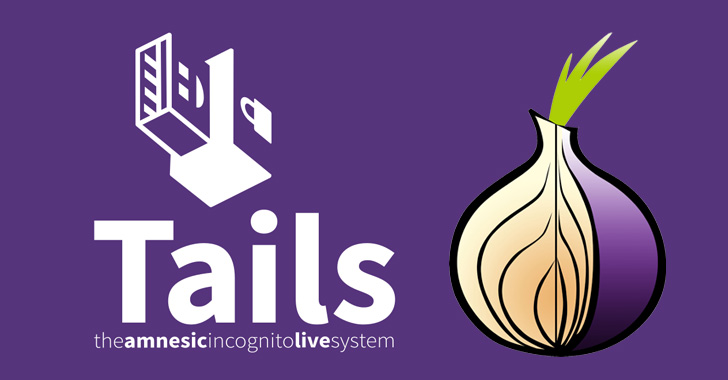
Catering to those who wish to opt into privacy as well as bypassing censorship, TailOS is a linux distro that comes with a slew of tools designed to keep your activities anonymous. It comes with an OS level VPN, Tor Browser, as well as proxy tools with enough software to get you going for office works. Furthermore, it can be loaded into a USB drive, and easily be used on any target machine. Which makes it pretty accessible to anyone trying to do some work in a public PC – say in a cyber cafe.
Also read: Browser plugins recommended by Gurkha Technology.
2. Linage OS:

Lineage OS is the android equivalent of TailOS. Previously known as Cyanogenmod OS; it is now notoriously popular among Android power users. It comes with minimal bloatware, and tons of features that traditional Android distributions lack, sadly. We would like to remind readers, that it is intended to be a firmware replacement, not just an app you can download and install. So, we reckon a bit of technical knowledge is required to get started.
What if I wish to not move from Windows 10?
We strongly recommend against it. And for a very good reason – it is a privacy nightmare for the following reasons:
- Microsoft loves syncing your personal usage data anytime.
- Microsoft can uniquely identify you anytime using a unique ID.
- It can collect personal data like purchases, web history and passwords.
- You authorized sharing of your data by simply accepting the EULA.
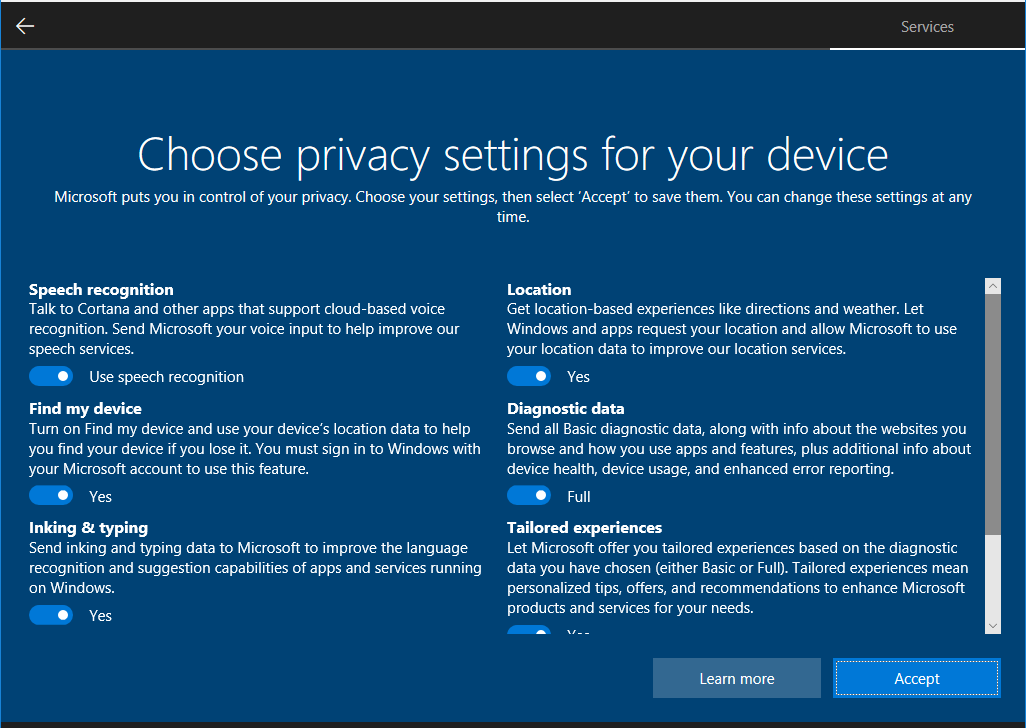
If you would like to stick to Windows 10, then we recommend adding in W10Privacy. It simply restricts Microsoft from gathering any data from you, by using a simple interface. You’ll be able to find all the settings there in one single menu, to change however you see fit.
Browser Privacy
Browsers come in many forms. Some are hilariously bad, others are a boon. While many love using chrome, it is a headache for others. Rather uncomfortable RAM usage as well as pretty lax privacy features make us feel uncomfortable using and recommending chrome. Here are Gurkha Technology’s picks for privacy assuring browsers:
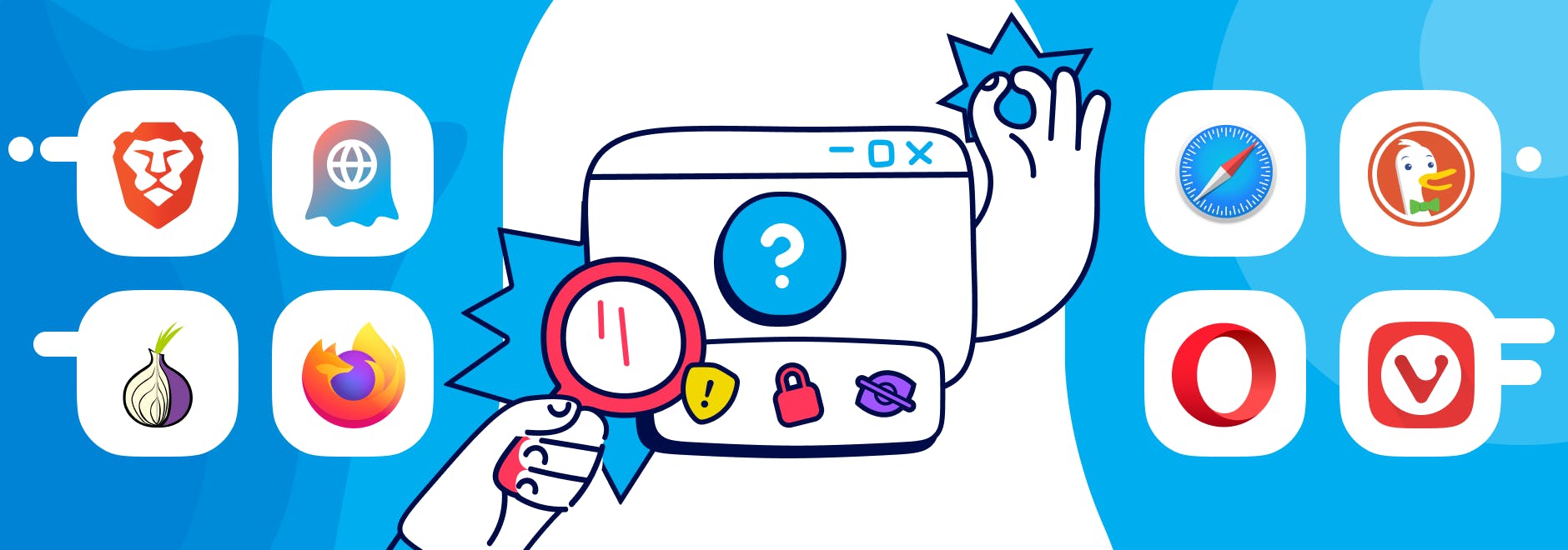
How Gurkha Technology is revolutionizing Census taking in Nepal.
3. Brave Browser:
So you get less ads, as well as get money for browsing instead? Brave Browser is nothing short of the perfect browser. Not only does it block third party trackers, annoying popups as well as ads, it allows you to earn money for using it. Based on chromium technology, migration from Google chrome is easy. All of your existing plugins should work easily. Although, having a pay-to-surf model take the cake. You can find brave browser supports almost every platform out there.
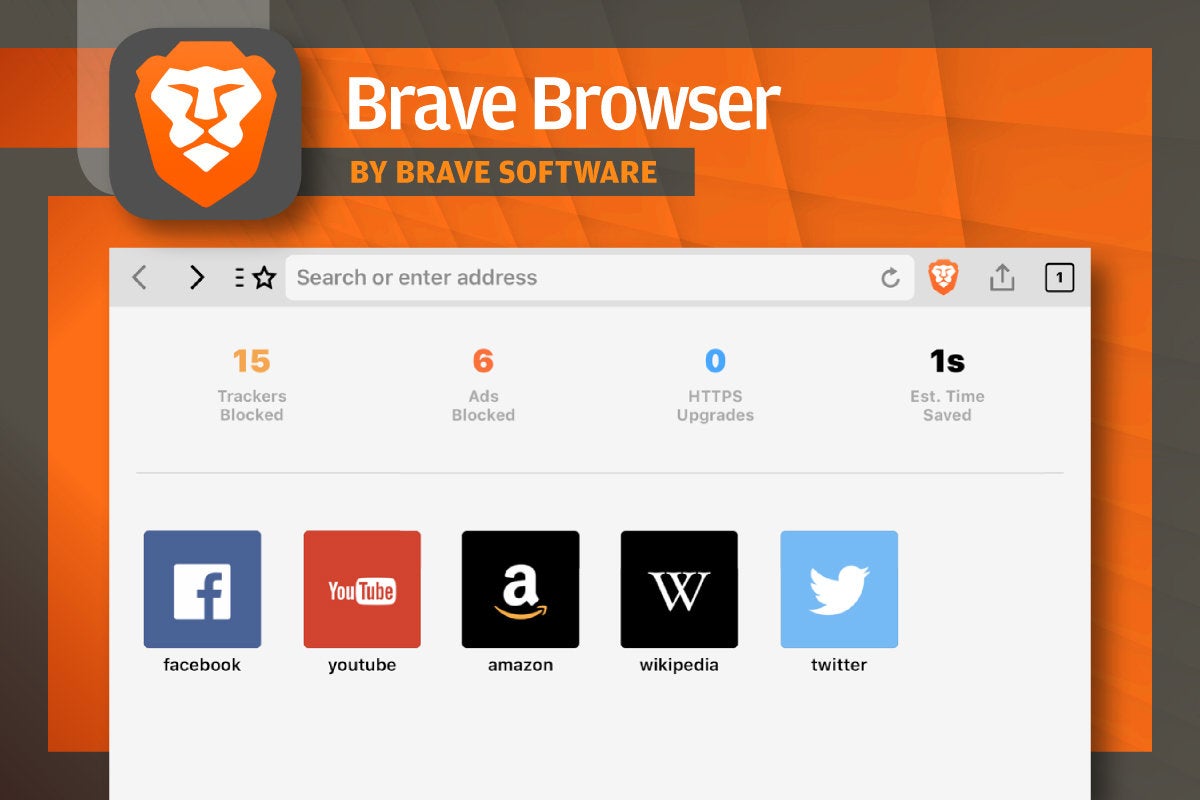
You can download Brave Browser here.
4. TOR Browser:
The Onion Router is another potential candidate to help cover your tracks online. Formerly a US military project, TOR is now an opensource tool anyone can setup within minutes to help anonymize themselves. Besides having a VPN, TOR also allows one to access deep/dark web pages, which are normally inaccessible to traditional browsers.

Be wary though : if you do not take required measures, you can come across pretty disturbing stuff in the deep web. Although mainly used by those valuing privacy, TOR is also used by criminals. Looking up a few articles online, you should be ready to use TOR. We do tell you this: TOR can’t hide your activities, so if you have a behavior pattern or web surfing habit that is easily identified, you’re better off not using TOR.
What if I can’t/don’t want to use these?
Boo! It’s for your own good! We understand if you are having trouble breaking years worth of bad habit, but you can try! However, if you wish to continue using mainstream browsers, we got a few plugins to get your covered:
5. Ghostery:

Ghostery is a privacy addon for browsers that are deemed insecure for web experts. In addition to removing ads, it also disables third party tracking scripts. Pretty nifty. It also allegedly removes visual clutter from website, although we admit we don’t see much difference with and without Ghostery. What we do notice is how much it helps removing trackers and ads : it’s magical.
6. Facebook container:
Facebook container helps reducing tracking attempts made by Facebook. Even when you’re not on Facebook, as long as you’re logged in somewhere, Facebook can know who you are, and what exactly you’re doing with the help of scripts. Facebook container seeks to alleviate that concern. All it does is isolate your activities online so trackers can’t look you up, then find out which user you are. This has a lot of impact on what ads get targeted at you, as well as helping you establish your privacy.
DNS Privacy
DNS are still foreign concepts when it comes to modern times. And we hate it: they do so much more than simply making the web safe for you. Allegedly, sometimes using your ISP’s DNS is slower than using a free DNS provider. Easily put, a DNS is a server that stores IP of the sites you wish to visit, and tells your browser where to look for it. And since ISPs love enforcing censorship via DNS level blocking, you can safely bypass bans on website you frequent. There are many DNS providers, both paid and free. While Google’s own DNS was often popular, things aren’t just the same now. Google loves sharing your data to Ad agencies, which in turn sell it to potential companies looking to make more clients. We recommend the following DNS if you wish to begin ditching your ISP’s DNS:
7. CloudFlare DNS:
Why should you use CloudFlare? Well, (a), cloudflare has a server dedicated for Nepalese users, (b) it’s secure, and (c), it’s free. All you need to do is change your internet protocol(IP) settings, change your DNS server, and you’re golden. All you need is the magic IP: 1.1.1.1, and you can begin browsing the internet albeit faster, and secured.
Read more about CloudFlare here
8. OpenDNS:
OpenDNS is a viable alternative to use if CloudFlare is troublesome. All you need to know are it’s name servers: 208.67.222.222, and 208.67.220.220.
More useful Services
There are some more services worth eyeing over if you wish to help make the internet easier for you. Read on to find more about them:
9. DeSeat.Me:
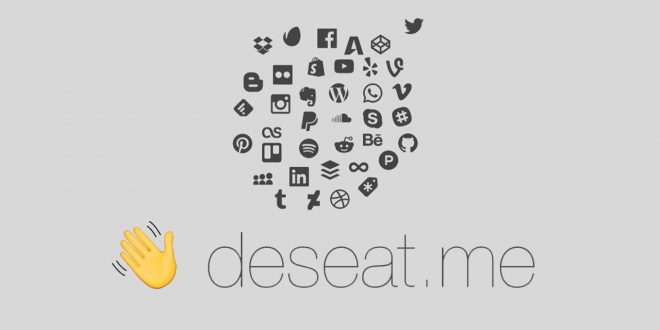
De seat me is an underrated tool you can use to audit your email account’s privacy towards companies collecting data on you. The tool quickly finds out what websites you’re subscribed or registered to, then suggests ways to utilize the GDPR policy the company may have in order to remove any personal data they may be saving. It even composes and sends data removal emails to the company’s corporate email on your behalf. Since the access is via Oauth2.0, Deseat.Me only gets data it needs to remove data, it doesn’t store any for itself. It also helps track the removal requests, and notifies you if you need to do a follow through. Overall, a pretty comprehensive service Gurkha Technology wholeheartedly recommends using.
10. DuckduckGo
Why do you need to move from Google search engine possibly? Well firstly, it saves literally every activity you have on it. Secondly, it can accurately tell who you are, what your activities are online, as well as a lot of compromising information about you. And lastly, Google doesn’t hesitate selling that information to virtually any Ad Agency online. Check out DuckDuckGo, a search engine that gives you relevant results, doesn’t store or sell your data, and makes looking up stuff online a breeze.
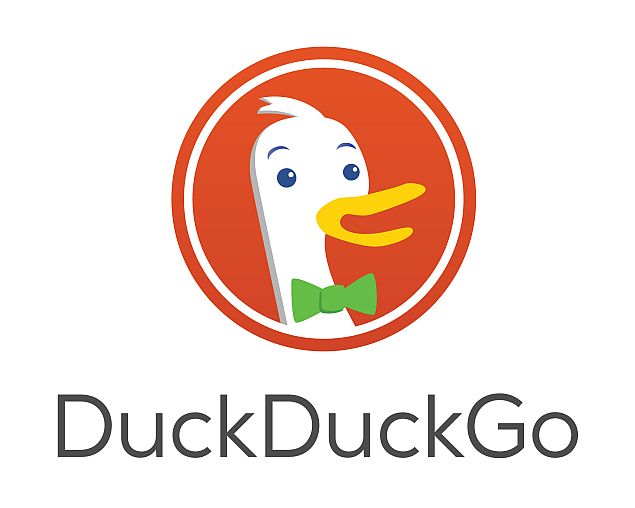
The search engine is quackers!
If there is no incentive whatsoever in using Google for your search results, then why not use DuckDuckGo instead? Our devs at Gurkha Technology have nothing but high praises for DuckDuckGo, it always turns up with minimal clutter, and relevant search results, without Ads popping up as search results (Oooh, viagra pills? Thanks Google!). So the next time you intend to look something up online, try and use DuckDuckGo, it’ll fail to disappoint. Moreover, even most of the browsers have taken up options to search via DuckDuckGo. So why not give it a go?
11. ProtonMail
If you’re not using a secured corporate email, or a paid email service, stop right now, and make yourself a ProtonMail account: you have nothing to lose using this email platform. Free emails are known to read your private emails, as well as running their AI to help them make better products, without a single consent from you.
ProtonMail promises to not interfere between you and those who correspond, by using encryption they themselves have no interest on decrypting. While they do provide premium mailbox service, their free mailbox is already secure enough to use for your personal needs. Simply head on over to their webpage, and make a new secured email address in a matter of minutes.
12. Mega
Wish to truly keep your personal files in the cloud away from nosy companies? Use Mega. Formerly known as MegaUploads, which is now defunct, Mega.co aims to help you store your files encrypted in the clouds. With a generous 50GB of free space, with ample bandwidth allowance, they help preserve your files for time infinitum. With PGP encryption, as well as a secured key only you can access, your files are bound to be saved and only retrieved by the true owners: yourself.
Mega currently allows for 2GB daily bandwidth, with unlimited storage facility for its premium members. Although albeit expensive, the security itself is worth all the money you can shell out for it. Gurkha Technology wholeheartedly recommends using Mega for your personal documents, as they can be accessible from virtually anywhere – all that’s needed is a modern browser and you are good to go.
Also checkout Anonfile, which is an equally awesome anonymous file sharing tool.
Conclusion
The saying “If the service is free, you are the product” is very true in the world of the internet. Most of the services we use on a daily basis are free, but they collect data about us and sell it to advertisers. This data can be used to target us with ads that are more likely to interest us, but it can also be used to track our movements and activities online. This raises concerns about our privacy and personal freedom.
We need to be aware of the risks involved in using these services and take steps to protect our privacy. We can do this by using privacy-focused browsers and extensions, and by being careful about the information we share online. We should also be aware of the fact that our privacy is not absolute, and that governments and corporations can access our data if they want to.
It is important to have a discussion about the state of personal freedom and privacy on the internet. We need to decide what level of privacy is acceptable to us, and how we can protect our privacy in the digital age.
Until next Blogday Friday!
📚 For more insights, check out our comprehensive digital marketing guide.
